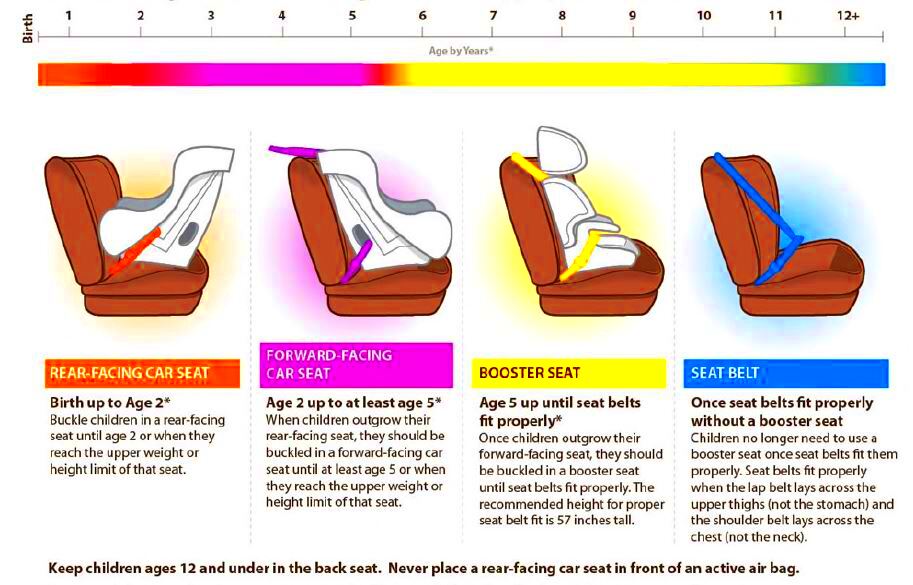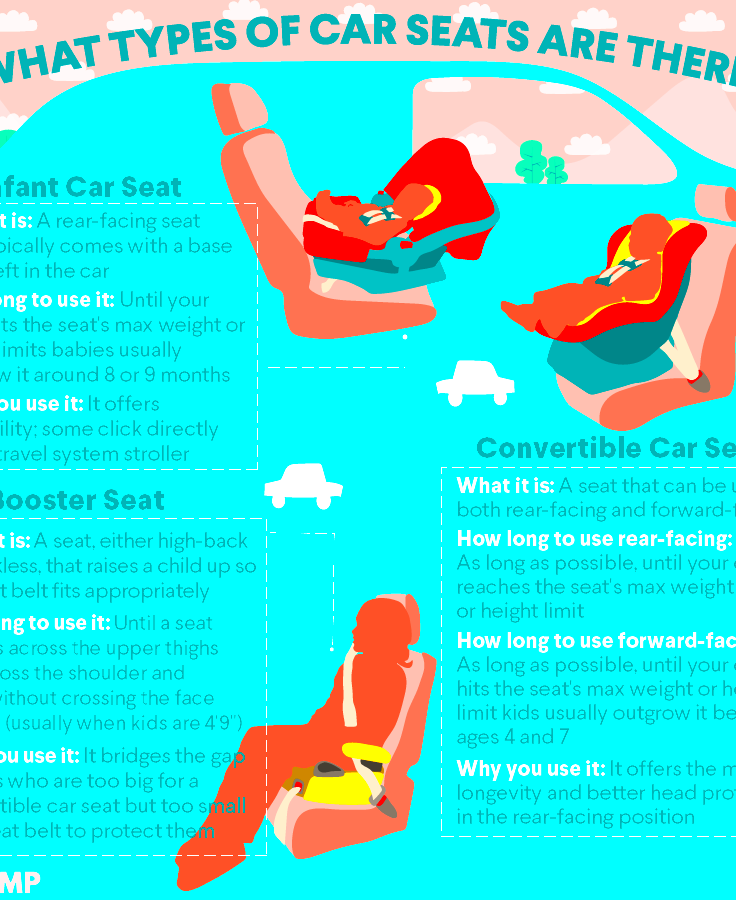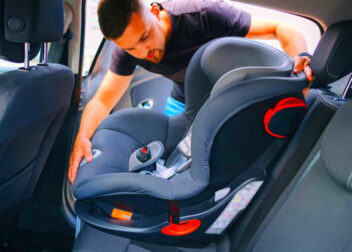Understanding Car Seat Laws in Louisiana
Understanding car seat laws in Louisiana is crucial for every parent and caregiver. These laws are designed to protect young passengers and ensure their safety while traveling. Knowing these regulations can help you make informed choices when it comes to selecting and using car seats. This guide will walk you through the essential aspects of car seat laws in Louisiana, making it easier for you to keep your child safe on the road.
Importance of Car Seat Safety

Car seat safety is not just a legal requirement; it’s a vital part of keeping children safe during travel. Here are some key reasons why car seat safety is essential:
- Reduces Risk of Injury: Properly used car seats can significantly lower the risk of injury in an accident.
- Legal Compliance: Following car seat laws helps you avoid fines and penalties.
- Peace of Mind: Knowing your child is safely secured allows you to focus on driving.
- Promotes Good Habits: Teaching children about car safety helps instill lifelong habits.
By prioritizing car seat safety, you’re not only following the law but also safeguarding your child’s well-being.
Overview of Louisiana Car Seat Laws
Louisiana has specific car seat laws aimed at protecting children based on their age, weight, and height. Here’s a summary of the main regulations:
| Age Group | Car Seat Type | Requirements |
|---|---|---|
| Infants (0-1 year) | Rear-facing car seat | Must remain rear-facing until at least 1 year old and 20 pounds. |
| Toddlers (1-4 years) | Forward-facing car seat | Should use a forward-facing car seat with a harness until they reach the maximum weight limit. |
| Young Children (4-9 years) | Booster seat | Must use a booster seat until the vehicle seat belt fits properly. |
| Older Children (9-12 years) | Seat belt | May use a seat belt when they are tall enough for it to fit properly. |
Understanding these laws is essential for ensuring your child’s safety and complying with Louisiana regulations.
Types of Car Seats and Their Uses
When it comes to car seats, understanding the different types available is essential for your child’s safety. Each type of car seat is designed for specific age groups and sizes, ensuring that your little one is secure while traveling. Here’s a breakdown of the main types of car seats:
- Rear-Facing Car Seats: These are designed for infants and toddlers. They provide the best protection for a child’s head, neck, and spine in a crash. Always keep your child rear-facing for as long as possible, typically until they reach the maximum weight limit.
- Forward-Facing Car Seats: Once your child outgrows their rear-facing seat, a forward-facing car seat with a harness is the next step. This type provides added protection as your child grows and allows for higher weight limits.
- Booster Seats: When children are too big for forward-facing seats, booster seats help position the seat belt correctly on their body. These are used until the child is tall enough to use a seat belt alone.
- All-in-One Car Seats: These versatile seats can be used in all stages from rear-facing to booster. They adapt as your child grows, making them a cost-effective option.
Choosing the right type of car seat based on your child’s needs is crucial for safety during travel.
Age and Weight Requirements for Car Seats
Understanding the age and weight requirements for car seats is vital for compliance with Louisiana laws and for your child’s safety. Here’s a quick guide to help you:
| Age Group | Weight Requirement | Car Seat Type |
|---|---|---|
| Infants (Birth to 1 year) | Up to 20 pounds | Rear-Facing Car Seat |
| Toddlers (1 to 4 years) | 20 to 40 pounds | Forward-Facing Car Seat |
| Young Children (4 to 9 years) | 40 to 80 pounds | Booster Seat |
| Older Children (9 to 12 years) | 80 pounds or taller than 4’9″ | Seat Belt |
Always check the car seat manual and your vehicle’s owner manual for specific installation guidelines and requirements. Following these age and weight recommendations ensures your child’s safety on the road.
Common Mistakes in Car Seat Usage
Even with the best intentions, many parents make mistakes when it comes to car seat safety. Here are some common pitfalls to avoid:
- Using the Wrong Car Seat: Make sure you’re using the correct car seat type for your child’s age and size. Check the manufacturer’s guidelines for specifics.
- Improper Installation: Many car seats are not installed correctly. Always follow the instructions and consider having it checked by a certified technician.
- Turning the Seat Too Early: Keep your child in a rear-facing car seat for as long as possible. Many parents switch to forward-facing seats too soon.
- Loose Harness Straps: Ensure the harness straps are snug against your child’s shoulders. A loose harness can lead to serious injury in an accident.
- Not Using a Booster Seat: Children should remain in a booster seat until they are tall enough for a seat belt to fit properly. This is typically around 4’9″.
By being aware of these common mistakes, you can help ensure your child’s safety and comply with Louisiana car seat laws.
Enforcement of Car Seat Laws in Louisiana
Enforcement of car seat laws in Louisiana is essential to ensure the safety of children on the road. Law enforcement agencies actively monitor compliance with these laws to protect young passengers. Here’s how car seat laws are enforced:
- Traffic Stops: During routine traffic stops, police officers can check for proper car seat usage. If a child is not secured correctly, the driver may receive a citation.
- Safety Checkpoints: Many communities hold safety checkpoints where officers inspect vehicles for compliance with car seat laws. This proactive approach raises awareness about car seat safety.
- Education Programs: Local law enforcement often collaborates with health organizations to educate parents about car seat laws and safety. These programs may include workshops or informational sessions.
- Fines and Penalties: Failing to comply with car seat laws can result in fines. The amount varies depending on the violation, but it serves as a reminder of the importance of safety.
Staying informed about enforcement practices can help you avoid penalties and, more importantly, ensure your child’s safety while traveling.
Frequently Asked Questions about Car Seat Laws
When it comes to car seat laws in Louisiana, many parents have common questions. Here are some frequently asked questions that might help clarify things:
- What type of car seat should I use for my newborn? Use a rear-facing car seat for newborns until they are at least 1 year old and weigh 20 pounds.
- Can I use a second-hand car seat? Yes, but ensure it meets current safety standards, hasn’t been in an accident, and comes with all its original parts.
- How long should my child stay in a booster seat? Children should use a booster seat until they are about 4’9″ tall, typically between 8 to 12 years of age.
- What if my car doesn’t have a back seat? If your vehicle lacks a back seat, ensure that the car seat is installed correctly in the front seat and that the airbag is turned off.
- Where can I get my car seat checked for safety? Many local fire departments, police stations, and hospitals offer car seat safety checks. Check for events in your area.
These FAQs can help clarify your understanding of Louisiana’s car seat laws and ensure you are following the regulations properly.
Conclusion on Car Seat Safety and Compliance
Car seat safety is not just about compliance with the law; it’s about protecting our most vulnerable passengers—our children. By understanding the types of car seats, their appropriate use, and Louisiana’s car seat laws, parents can significantly reduce the risk of injury in a crash. Here are key takeaways:
- Stay Informed: Regularly update your knowledge about car seat laws and recommendations as they can change over time.
- Choose the Right Seat: Select a car seat based on your child’s age, weight, and height to ensure optimal protection.
- Proper Installation: Always install the car seat correctly and check for tightness and secure fitting.
- Seek Help: Don’t hesitate to reach out for assistance in installing your car seat or checking its safety.
By prioritizing car seat safety, you are not only adhering to Louisiana laws but also taking the necessary steps to ensure your child’s safety on every journey. Safe travels!


